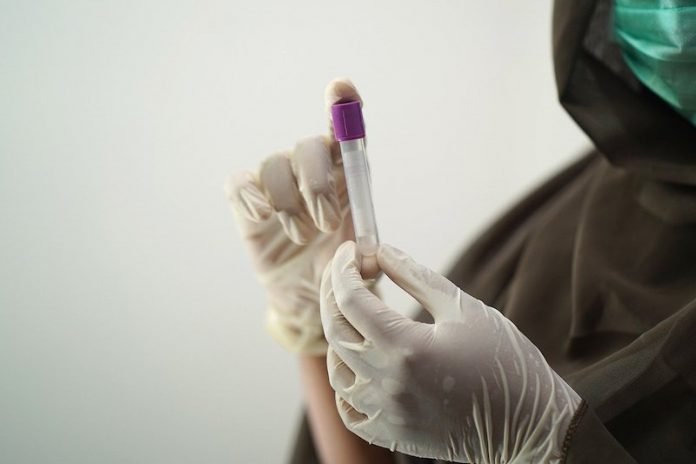
In a new study, researchers developed a way of testing whether or not COVID-19 patients’ immune systems are gearing up to fight the virus that causes the deadly disease.
They hope the discovery could be used to identify early on which patients’ immune systems are not responding appropriately, and who might therefore be at higher risk of becoming seriously unwell.
The research was conducted by a team at QIMR Berghofer’s Translational and Human Immunology Group.
The prototype test detects high levels of two key chemical signals that are produced by T cells when they recognize SARS-CoV-2-infected cells and start to fight the infection. SARS-CoV-2 is a virus that causes COVID-19.
T cells are the immune cells that recognize and destroy cells infected with SARS-CoV-2. They typically mount an early response, even before the body starts to produce antibodies.
Most importantly, T cells develop a lasting memory of viral infections, which enables the immune system to respond rapidly in the event of reinfection.
In the study, the team examined blood donated by 44 Queenslanders who had recovered from COVID-19.
They isolated the T cells from the donated blood, exposed them to viral peptides, and measured the production of a number of different signaling molecules.
They then compared the levels produced by T cells from the recovered COVID-19 patients with levels released by T cells from 20 healthy donors who had never been infected with SARS-CoV-2.
The researchers found that T cells from people who had recovered from COVID-19 produced larger amounts of the signaling molecules interferon-gamma and interleukin-2, which are involved in killing virus-infected cells and encouraging other T cells to come to the infected area.
They screened a range of SARS-CoV-2 peptides to work out which combination could be used to detect a successful T cell immune response, which they can then measure by detecting these two key signaling molecules.
The team says a blood test for the early immune response to the virus could particularly help countries experiencing second and third waves.
One author of the study is Associate Professor Corey Smith.
The study is published in Clinical & Translational Immunology.
Copyright © 2020 Knowridge Science Report. All rights reserved.



